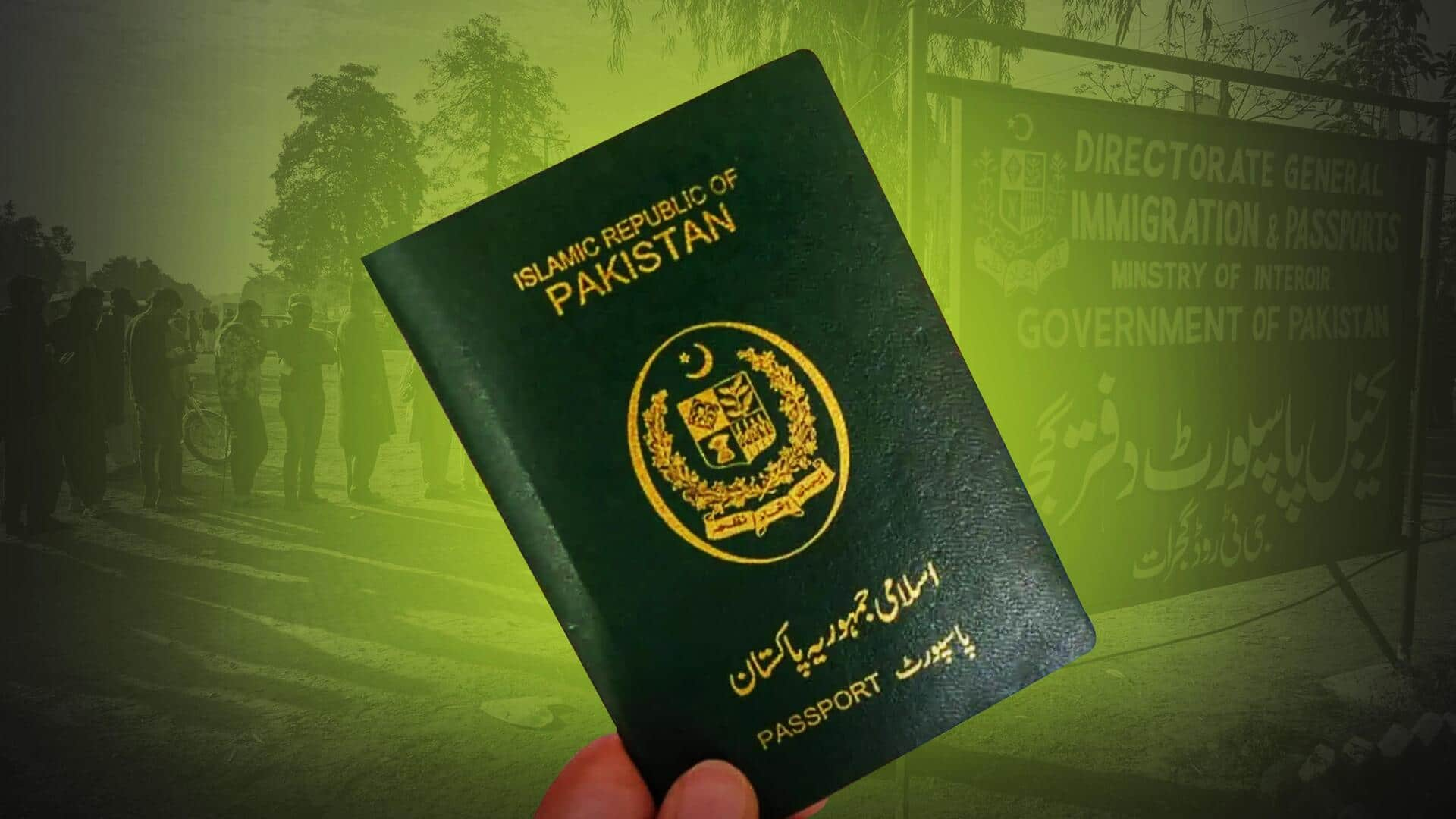
Pakistanis await passport as country runs out of lamination paper
What's the story
Thousands of people in Pakistan looking to travel abroad are facing difficulties since the country's Directorate General of Immigration and Passports (DGI&P) is unable to process passports due to a lamination paper shortage. The country relies on imports of lamination paper from France, and the current scarcity has resulted in a backlog of unprinted passports to the tune of lakhs amid a sharp increase in applications for new passports.
Details
Officials allegedly didn't act despite being aware of shortage: Reports
According to Pakistani media, the officials in charge of acquiring lamination paper did not act promptly despite being aware of the crisis. Meanwhile, daily passport applications are estimated to have reached around 40,000 compared to the previous 20,000-30,000. The sudden increase in passport applications is being attributed to the ongoing economic turmoil in Pakistan coupled with the relaxation of travel restrictions, prompting citizens to look for job opportunities and education abroad.
What Next?
Extended delivery periods and backlog
The DGI&P has extended the delivery times for passports. Standard passports now require a month instead of 10 days, urgent mode takes 15 days rather than five, and fast-track mode takes five days instead of two. Students with approved visas are concerned about missing out on opportunities, while others have had to cancel work or travel arrangements. The government is reportedly dealing with a backlog of nearly seven lakh unprocessed passports.
Insights
Similar situation arose in 2013
Earlier, the DGI&P processed 3,000-4,000 passports a day, but it now struggles to process only 13 or 14 passports each day. A similar situation occurred in 2013 when passport printing was suspended due to DGI&P's outstanding debts to printers and a shortage of lamination papers. Passport offices in Pakistan are unsure as to when the process will get back on track, with officials indicating that people may have to wait another month or two.